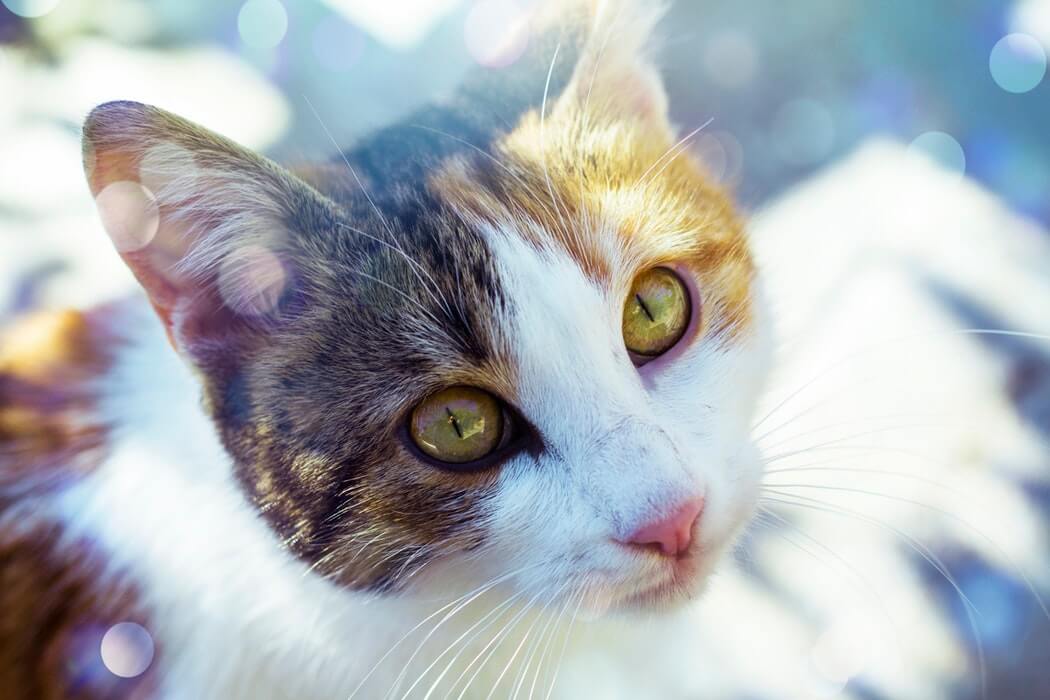
Just like humans, cats can also catch colds or upper respiratory infections. However, human colds are caused by viruses that do not infect cats, so you need not worry about transferring your cold to your pet. Respiratory infections that affect cats are from a specific virus or bacteria that will only target them.
Most adult cats are unlikely to get this infection unless they are not adequately vaccinated. Kittens, old or already sick cats are much more likely to fall ill with one of these upper respiratory infections. But cats that live in shelters or pet stores are also vulnerable. This is because many cats live close to each other increasing the risk of passing it on to each other.
Table of Contents
How To Tell If Your Cat Has A Cold
Sneezing a little is common for cats just as it is for other pets or humans. This is usually caused by a sudden irritant, dust or something that might tickle their nose. Your cat will sneeze a few times until they have removed that substance from their noses. This is normal and nothing to worry about. If your cat starts sneezing too much and has nasal discharge, you should consult a vet.
Allergies
At times your cat could have an allergy to something that causes this sneezing. Air fresheners, perfumes, and cigarette smoke can cause irritation to the cat’s sensitive nose. Compared to a human, our feline companions have a much stronger sense of smell. Their nose can be irritated with fragrances that most of us would not be bothered by at all. If you notice your cat suddenly sneezing too much, you should identify what strong smell it has been exposed to. Also, be careful not to let your kitty around when you use it next.
What Causes Upper Respiratory Infections Or Colds In Cats?
This type of illness affects the larynx, pharynx, and nose of our beloved felines. The most common culprits are viruses like the calicivirus or the herpes virus. Also, there are a few bacteria like those from the Bordetella or mycoplasma species. As these pathogens are commonly airborne, they spread to the air in the area when your cat sneezes. The droplets that we can or cannot see sometimes carry the virus or bacteria which is how these infections can spread to other cats that live in the same space. To prevent your other cats from getting sick, you can keep your infected kitty in a separate room.
You May Also Interested In: When Cat Is Sick?
Symptoms Of An Upper Respiratory Infection
Since several different reasons could cause a cat to sneeze, being watchful of the signs that are indicators of a disease as opposed to an allergy are helpful. Symptoms that signify an infection are:
- Excessive sneezing
- Coughing
- Loss of appetite
- A runny nose
- Discharge from the nose or eyes that could be green, yellow or white
- Lethargy
- Excessive swallowing
- Fever
- Dehydration
- Raised third eyelid
Often these symptoms can be mild and are resolved without any medication. If you notice these increasing in severity or if your cat shows multiple signs, it’s time to act. A cat that is very old or young has a lower immunity and could be more vulnerable. The same is also true for a cat that is already sick. Watching out for these symptoms in your pets is essential.
Treatment Options
A healthy cat that is not living in a shelter, pet store or home with several other cats, is likely to get better on its own.
A cat’s immunity is able to deal with small infections such as these reasonably quickly. Of course, the cat will exhibit some mild symptoms, but they go away in a few days. Pharmacological treatments are necessary if your cat starts showing severe signs of the illness. Treatment with antibiotics is usually enough to cure your cat of the cold. However, if there are other symptoms present, other medicines might be required.
If your cat has not eaten enough or not consuming any water, a vet would have to start intravenous fluids. This is to prevent dehydration and supplement nutrients. It is likely that medicines that increase appetite will be prescribed so it can go back to eating independently. Your cat could also be given drugs to be put in the eyes in case eye discharge is one of the symptoms.
Treatment Will Depend On Symptoms And Severity
Your veterinarian will be able to determine what course of treatment should be followed based on the symptoms. Even though it might seem that your cat’s symptoms are mild, a trip to the vet is a good idea. That way you can eliminate any severe illnesses and act to fight against the infection before it becomes too harsh. You can inform your vet of any other cats or pets you have in the house so they can give you information that will help you keep them clear of the infection.
However mild or severe the symptoms are, do not start medicating your cat before consulting your veterinarian as this could worsen things for your cat.
What To Do Before Visiting The Vet
If your cat starts showing symptoms of an upper respiratory infection, there are some things you can do to care for your cat right away. One of the first symptoms that your pet is sick is usually a loss of appetite. You can encourage your cat to eat by giving it a preferred meal, perhaps a particular flavor of cat food or something else your cat is partial to. Warming the food a little makes it easier for your cat to swallow. You should ensure that your cat has plenty of fresh water to drink. A running nose and discharge from the eyes can be quite annoying. You can ease these symptoms by wiping your cat’s eyes and nose with a clean cloth dampened with warm water.
Just as we tend to feel cold when we’re sick, your cat does too. You can increase the temperature in your home to help your kitty feel better. Natural home remedies like apple cider vinegar are also helpful as they are rich in Vitamin C. You can also help your cat by giving it a massage or helping it with its grooming routine.
You May Also Interested In: Do Cats Drink Water?
Conclusion
Dealing with a sick pet can be heartbreaking, especially as they are unable to say anything to you. The cold, while annoying, is not a severe condition and provided you take care and consult your vet, your cat should be back to its usual self in no time.
Share this:
- Click to share on Twitter (Opens in new window)
- Click to share on Facebook (Opens in new window)
- Click to share on Tumblr (Opens in new window)
- Click to share on Pinterest (Opens in new window)
- Click to share on Reddit (Opens in new window)
- Click to share on Telegram (Opens in new window)
- Click to share on WhatsApp (Opens in new window)
- Click to print (Opens in new window)
